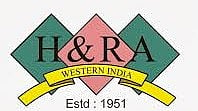
Hotel And Restaurant Association (Western India) logo.
Credit: Facebook/Hotel And Restaurant Association (Western India)
Mumbai: The Hotel And Restaurant Association (Western India) has submitted a comprehensive representation to Prime Minister Narendra Modi seeking urgent rationalisation of the newly announced GST structure for the hospitality industry.
In its submission, the Association has welcomed the Government’s commitment to next-generation GST reforms following the 56th GST Council Meeting but cautioned that the proposed levy of GST at the rate of 5 per cent without Input Tax Credit (ITC) on rooms priced below Rs.7,500 could significantly impact business viability, fresh investments and the affordability of tourism in India.
The representation underscores that the removal of ITC contradicts the foundational principle of GST; ensuring a seamless flow of credits and avoiding tax cascading. Without ITC, operational costs for hotels will surge, ultimately increasing the financial burden on consumers and stifling new investments in the industry.
“While we appreciate the Government’s intent to simplify GST and offer lower rates to end-consumers, the absence of ITC reverses years of progress towards a seamless tax-credit system. This will inflate costs for hotels, particularly those operating in the budget and mid-scale segment and could make accommodation less competitive compared to neighbouring countries,” says Jimmy Shaw, President, HRAWI.
HRAWI has highlighted key concerns including the increased cost of operations due to the denial of ITC. It stated this will raise the cost of setting up new hotels by at least 10 per cent, as credit won’t be available on essential inputs like equipment, linen and crockery. Hotels operating from leased premises, of which the rent comprises 20 to 25 percent of operational costs, will be disproportionately affected due to ineligible ITC.
The Association also pointed out that linking F&B services to room tariffs is impractical in an era of dynamic pricing, where room rates fluctuate based on demand and seasonality.
“To balance consumer benefits with industry sustainability, we are proposing 5 per cent GST with 50 per cent ITC benefit similar to provisions for banking institutions, or 18 per cent GST with full ITC on two-thirds of the value for rooms under Rs.7,500. We also strongly recommend the delinking of F&B Services from room tariffs and allow F&B service providers to choose between 5 per cent GST without ITC or 18 per cent GST with full ITC. Lastly, make the composition scheme mandatory for F&B services with an annual turnover of up to Rs.5 crore,” adds Dilip Kothari, Honorary Tax Advisor, HRAWI.
HRAWI has pointed out that the hospitality sector is a critical pillar of India’s economy, contributing 5.8 per cent to GDP and supporting over 32 million jobs. The proposed changes could jeopardize recent Government initiatives aimed at boosting tourism and hamper progress towards the Vision 2047 goals of making India a global tourism powerhouse.